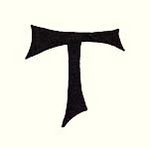

Rock Church Ethiopia
Pope Shenuda III the Coptic Pope of Egypt is on a three day visit to Ethiopia. He will meet with Ato Malez Zewnawi the Ethiopian Prime Minister. They will focus on working toward achieving peace in the Horn of Africa. This is no small matter since Ethiopian troops are in Somalia.
His Holiness will also meet with Patriarch His Holiness Abune Paulos who is the Patriarch of the Ethiopian church. The two churches have a long and ambivalent history. It was only in 1951 that the Ethiopian Church became autonomous from the Egyptian Church. Both Churches have ancient histories. Both claim St. Mark as their apostolic founder. However they also have unique histories.
Egypt begins its history with the Holy Family fleeing King Herod and entering Egypt. The Church stresses Old Testament prophesies that pertains to Egypt. The contributions of the Church to the larger Christian body are significant. The Desert Fathers gave the larger Church the model of the ascetic and monastic life. The Didascalia or the Catechetical School of Alexandria was the first and one of the greatest schools of theology in the history of Christendom. The Egyptian church was the home of a great many giants of early Christianity; St. Athanasius defender of the faith and writer of the Nicene Creed, Origen the father of theology, Athenagoras, Didymus the Blind but teachers at the Didascalia are but a few. This is a Church that began in persecution and unfortunately the persecution continued; the pagan Rome, Christian Byzantine and Islamic Egypt all persecuted the church at various times. The result was a resilient if minority Church that has withstood the test of time and reentered the larger Christian world body.
It is this Church that first responded to the small Church of Ethiopia. It was Bishop Athanasius that sent missionaries to Ethiopia. Athanasius made Frumentius the abuna or bishop of Ethiopia. Ethiopia became a Christian nation. The Ethiopian Church, the Tewhado, has had its bishops appointed by Egypt until the 1950, 16 centuries. However, the history is not at all a carbon copy.
Monasticism was introduced by monks from Syria. They encouraged the translation of the Bibl into Ethiopian Ge’ez. The Egyptians had translated the Bible into the Coptic language. There was far more diversity in the ancient Christian world than simply Hebrew, Greek and Latin.
The Ethiopian Christian dynasties had ancient linage. They traced their lineage to King Solomon of Israel. Many of the traditions and religious observances in Ethiopian were Jewish in origin
This is a nation that created a unique heritage. The rock churches of Lalibela became a site of pilgrimage. The followers of the Tewhado Church believe the Ark of the Covenant is Ethiopia
So, a shared past and custom but also so many distinct differences make it understandable that the relationship between the two Churches over the past decades has been ambivalent at best. For many Ethiopians the Coptic Orthodox Church of Egypt is associated with abuses of power and arrogance. However, for many Ethiopians they understand the complications of history and culture. This is a nation with Portuguese and Italian influences, with the ravages of communism and intolerance, with the struggle between Islamic and Christian Ethiopians. They understand that behaviors made in the name of faith are often behaviors that use faith as an excuse to be expressed.
Both Churches have long, strong Christian traditions and a long common bond. They know it is in their interest to become closer and supportive of one another in a world that is increasingly divided. It is important to moving toward one bay again being One Body.
Ethiopian Orthodox, New Bishops
Coptic Orthodox Church of Egypt













No comments:
Post a Comment